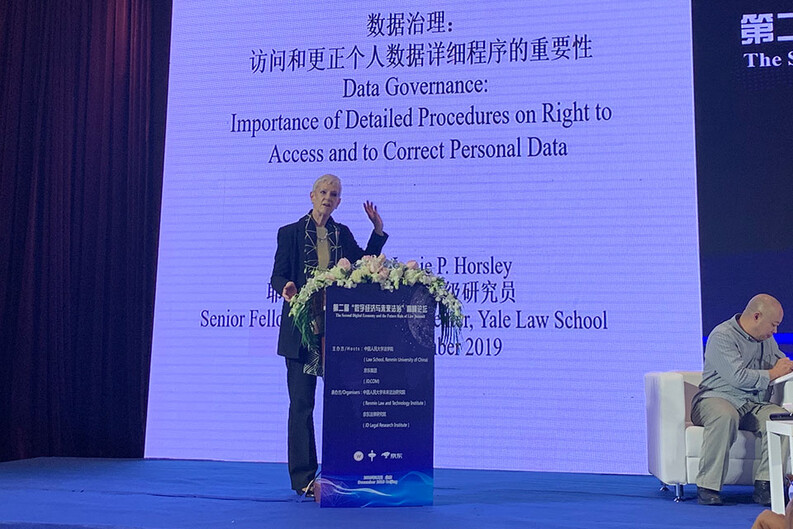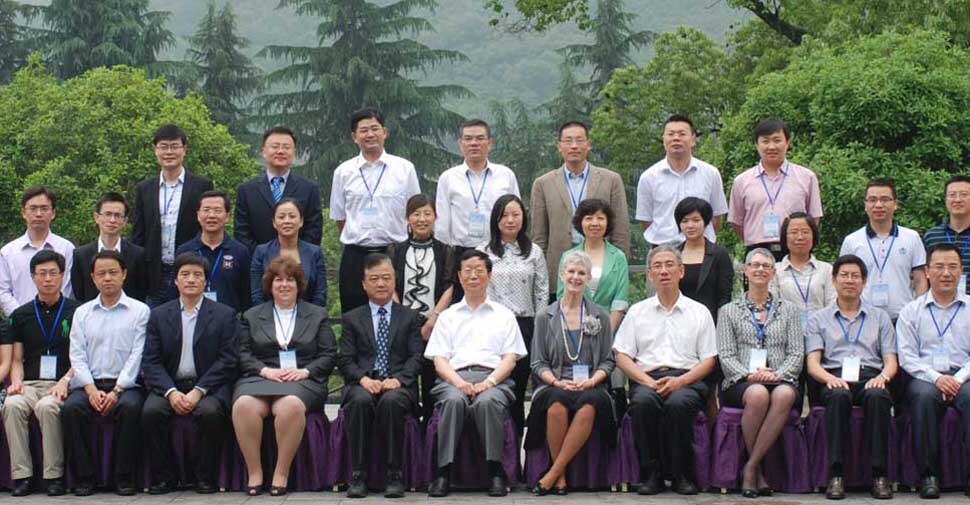Center Engages Major Administrative Law Issues in China

Administrative law and regulation remain dynamic fields in China, and the Paul Tsai China Center continues to actively engage both in interactions with Chinese experts and in writing about Chinese developments and challenges in these fields.
Senior Fellow Jamie Horsley has long led these efforts, working closely with other PTCC colleagues and students. Horsley’s recent efforts include continued involvement in important and evolving issues of open government and public participation in administrative processes in China. But the focus of her most recent work has been in two areas: (1) analyzing the outcomes of National People’s Congress4 (NPC) meetings and the increased and complex involvement of the Chinese Communist Party in state institutions and the legal system; and (2) the substantive regulation of cross-border data flows and data privacy. Horsley regularly holds Zoom dialogues and more informal exchanges with counterparts in China to explore comparative approaches to these issues. And she is a regular source for U.S. media5 and journals seeking to understand6 these issues.

In a forthcoming article, Horsley argues that the Party’s recent moves to absorb or exert strengthened leadership over traditionally state functions are concerning in terms of decreased transparency and accountability to the public. Nonetheless, some Chinese governing institutions are continuing to improve aspects of government transparency and accountability. Examples of such developments include the publication of annual open government information (OGI) reports by central and local authorities, the publication of legislative plans by both the NPC7 and State Council, public participation in legislation and decision-making, and greater access to remedies including administrative appeals8 and litigation.
These developments, occurring within an increasingly constrained political environment, carry potential benefits for the Chinese public today. Two of the Center’s recent visiting scholars9 from China participated in the drafting of local and national environmental legislation and used data obtained from government agencies through OGI requests in their work. Continued improvement of administrative processes also seems to be raising public expectations of improved governance practices that may encourage the party-state to strengthen the role of administrative law in promoting government accountability in the future.


